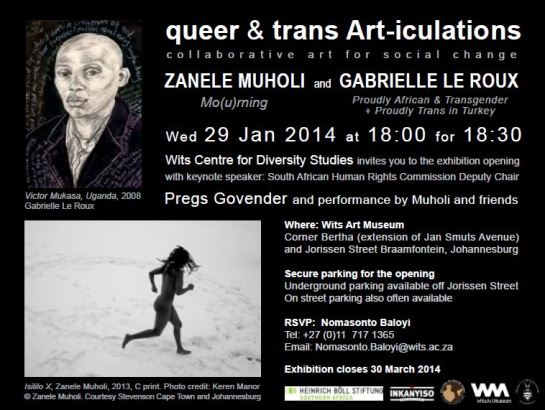Queer fandom nowadays has become a global phenomenon. It helps exemplify the complexities, anxieties, conflicts, and negotiations within and surrounding the collision of global, national, and regional cultures. Some of its subdivided fields, such as Western slash and Japanese Boys’ Love (BL), have received significant academic attention since 1980s (e.g., Aoyama, 1988; Bacon-Smith 1992; Buckley 1991; Fujimoto 1991; Jenkins 1992; Kinsella 1998; Matsui 1993; Penley 1992; Russ 1985). Especially in recent years, the distributions and interpretations of BL across language and geographical boundaries, the distinctiveness and similarities between BL and slash genres, the pornographic aspect of BL, slash, and other forms of queer fannish productions have been emphasized in a body of scholarly literature worldwide (e.g., Brienza 2009; Chao 2013; Galbraith 2011; Glasspool 2013; Isaksson 2009; Keft-Kennedy 2008; Levi 2009; Levi & McHarry & Pagliassotti 2010; Martin 2012; McLelland 2000; Meyer 2013; Mizoguchi 2008; Nagaike 2003; Nagaike 2009; Pagliassotti 2009; Penley 1991; Perper & Cornog 2002; Sabucco 2003; Shamoon 2012; Silvio 2011; Welker 2006; Wood 2006; Wood 2013; Zanghellini 2009).
Meanwhile, the blooming of Chinese queer fandoms in the past two decades has also offered rich sites of queer representations of gender and sexuality. Greatly shaped by Chinese traditional romantic literature, Japanese BL, and Western slash cultures (Feng 2009; Xu & Yang 2013; Yang & Bao 2012; Zheng 2009), contemporary Chinese queer fan cultures have been enjoying a growing diversity. The objects Chinese fans queerly fantasize about are by no means limited to local Chinese celebrities, nor to self-identified queer celebrities. The proliferation of cross-regional, cross-cultural, and transnational Chinese queer fandoms dedicated to androgynous celebrities, queer media, and popular culture is also hard to ignore. Yet, research explicating the intricacies of gender identities, sexual desires, regional differences, national belongings, and global queer cultural convergence and hybridization within Chinese queer fandoms is still far from adequate.
To fill this research gap, this edited collection stresses the struggles, potentials, and dynamics of queerness unveiled within a variety of the fannish contexts of Greater China. Bearing on the intersecting of global cultures studies, post-colonial studies, modern queer theory, and media audience research, we view queerness as a nonstraight spectatorial position (Doty 1993; Kohnen 2008) and/or a productive space (Munoz 1999). Accordingly, we aim to examine Chinese queer fandom as a grassroots cultural palimpsest that reconfigure, contest against, trespass, and/or overturn the dominant scripts of identity and subjectivity.
We seek chapter contributions that elaborate the cultural specificities, significances, transformativity, hybridity, historicity, and futurity epitomized by Chinese queer fan cultures. We are especially keen to receive manuscripts that consider the queer dimensions of gender, sexuality, desire, and fantasy from a wide range of Chinese temporal and geographical settings. We also very welcome submissions that employ interdisciplinary and/or comparative approaches.
Manuscript topics may include but are not limited to:
Ø Genders and Sexualities in Chinese Boys’ Love/Slash and Girls’ Love/Femslash Fandoms
Ø Queerness and Performativity in Fandoms Dedicated to Anime and Cosplay/Role-Play/Life-Play in Greater China
Ø Chinese Queer Readings of Media, Popular Culture, and Celebrities Worldwide
Ø Chinese Queer Fans’ Gender- and Sexuality-Related Identities, Agencies, Subjectivities, Fantasies, Desires, Connections, and Relationships within Fan Communities
Ø Racial Representation, Distant Cultural Construction, and Non-Chinese Imagination in Chinese Queer Fan Cultures
Ø The Interrelationship and Interaction between Chinese Queer Fandoms, Queer Organizations, Queer Movements, Queer Politics, and Queer Grassroots Publics and Communities
Ø Queer, Pornographic Representations of Male/Female Sexualities in Chinese Queer Fandoms
Ø The Transgressiveness, Multivalence, and Constructedness of Masculinities and Femininities in Chinese Fan-Made Queer Productions
Ø Violence, Abuse, and Aggressiveness in Chinese Fan-Made Queer Productions
Ø The Interplay of the Boom of Boys’ Love/Slash and/or Girls’ Love/Femslash Industries, Fans’ Passions for Queering and Queerness, and the Commercialization of and Censorship on Queer Media in Greater China
Note:
We are only interested in academic analytic papers grounded in certain critical/theoretical perspectives that have NOT been published elsewhere.
To submit chapter proposal submissions for consideration, please send a 1000- to 1500-word abstract (outlining the topic, methods, and fan-related materials used) with working bibliography and a CV to the book editors at queerfandom2014@yahoo.com by May 30th, 2014.
Acceptance will be handled on a rolling basis till the end of July, 2014. Early submissions are strongly encouraged.
Completed, well-polished papers from accepted contributors should run between 5,000 to 8,500 words and are expected before the end of December, 2014.

